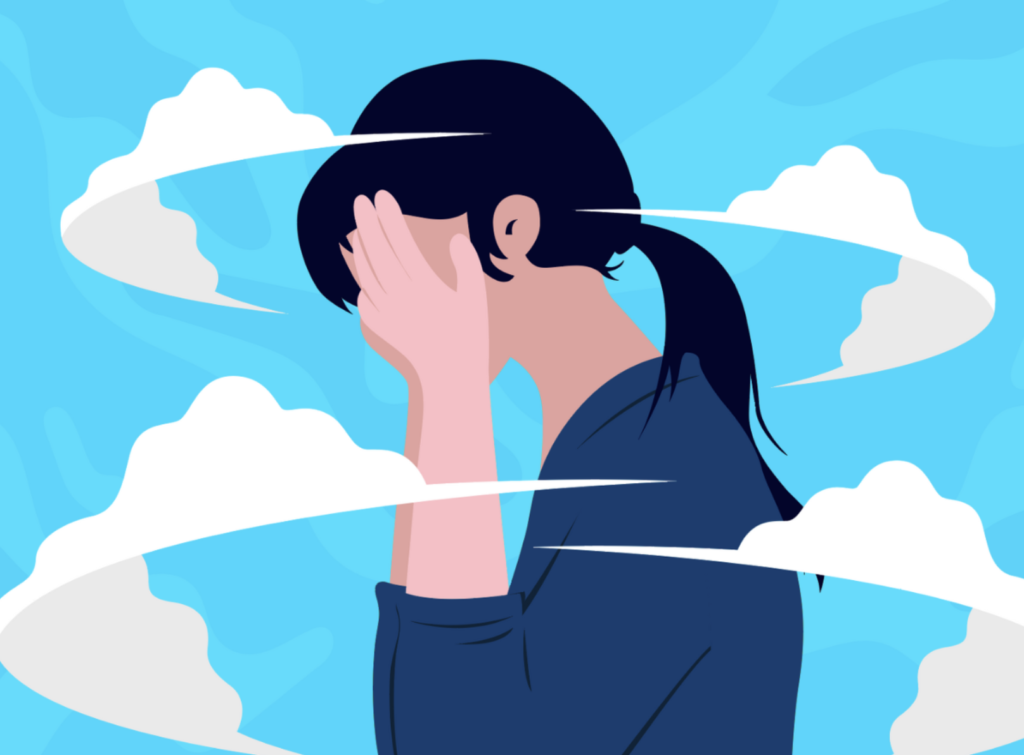Eczema and stress management: tips from psychologist Shawn Reynolds

Experts often report that stress can be a trigger for eczema. Yet, having eczema can be stressful. This can be a cyclical situation that can be overwhelming and difficult to navigate. Eczema Society of Canada (ESC) recently spoke with Shawn Reynolds, Ph.D., a registered psychologist from Edmonton, who has tips to manage stress.
Q: Where do we start when it comes to stress management?
A: “Pay attention to our stress cues. If you have a tight grip on the steering wheel when you’re driving, snap at your colleagues, or yell at your dog, these are signs that you’re under stress. It’s hard to manage our stress unless we realize that we are experiencing it.”
Q: How can we manage our stress?
A: “When we are in a stressful moment, or we’ve had a stressful day, think about what self-care acts we do to reduce the stress. These could include taking breaks, having a healthy meal, physical activity like a walk or exercise, or mixing in fun activities to break up hard tasks”
Self-care means actively ensuring your mood and well-being are going well, especially during periods of stress. Dr. Reynolds says: “This means paying attention to our physical and emotional needs and practicing self-care by being active and participating in enjoyable activities. When we take care of ourselves, we will be better able to care for others, which can help us feel more relaxed and in control.”
The importance of stress management
Learning how to manage stress gives you the tools to reset and fine-tune your internal alarm system. It can help your mind and body to better cope with life’s challenges. Neglecting stress management could leave your body in a heightened state. Over time, chronic stress can take a toll on your mental and physical health.
Q: How important is sleep in managing stress?
A: “Sleep is an underrated piece of stress management, but this can be difficult with eczema as sleep can be negatively impacted by itch and pain. Sleep is a crucial third of our lives and impacts everything we do. Sleep quality and quantity affect anxiety, mood, irritability, and focus.”
Q: Should we incorporate meditation into our self-care practice?
A: “People can add meditation, mindfulness, relaxation, and/or prayer – whatever words you choose to use to describe an action that allows you to chill out and manage a stressful situation. Engage in some relaxing act that gives your mind a break.” All of these can help you relax and calm your mind, by focusing your attention and more easily managing the thoughts that may be crowding your mind and causing stress.
Q: How can we help kids manage stress?
A: “Like adults, we want kids to identify when they feel stressed and to learn how to use self-care strategies. Kids often have good instincts in their self-care strategies. For example, in a grade three classroom, a child may take their own breaks. They might get up to sharpen their pencil and chat with a friend on the way back to their desk. These actions allow them to do their work because they can’t have their head down at their desk and work all the time. These strategies and the awareness of when we’re getting irritable, need a break, or need to stretch our bodies, is a great step toward improved wellness.”
Q: Eczema treatment is unique for each individual. Is the same true for self-care?
A: “Social and psychological support is about finding what works for you. Running at the end of the day works well for some people, while others may hate to run, and for them, running isn’t a win. There are many self-care activities we could do. The goal is to find a list of your top activities to relax and recharge you.”
Q: Is there anything else we should consider? Dr. Reynolds shares:
A: “We want to look for strategies that help in the short and long term. Social media scrolling for three hours might make you feel good that night, but it might not be the best activity to choose every night. You also want to be aware of how you feel after doing these things; did that activity make you feel better, or worse? Identify strategies that work for you, your lifestyle, and the character of the person you want to be.”
If you’re feeling overwhelmed and stressed and are concerned these feelings are contributing to your eczema symptoms, speak with a qualified health care professional. A doctor, such as a dermatologist, can help optimize your treatment plan, and a psychologist or mental health professional can help you manage feelings of stress and anxiety. There are resources in every province that can connect you with someone who can help, and your primary care provider can also help you find services in your area.
Eczema Society of Canada (ESC) thanks Shawn Reynolds, PhD, for his volunteer contribution to this educational content.
References:
Mayo Clinic (2023, December 14). Meditation: A simple, fast way to reduce stress.
Mayo clinic (2023, November 18). Stress Basics.
Disclaimer: Information provided in this resource does not constitute medical advice and is not intended to be used as a diagnostic tool. The information is up-to-date at time of publication. All medications, interventions, and treatment plans have risks and benefits, and it is important that individuals discuss their or their child’s specific health care needs with a qualified health care professional.
May 2024



